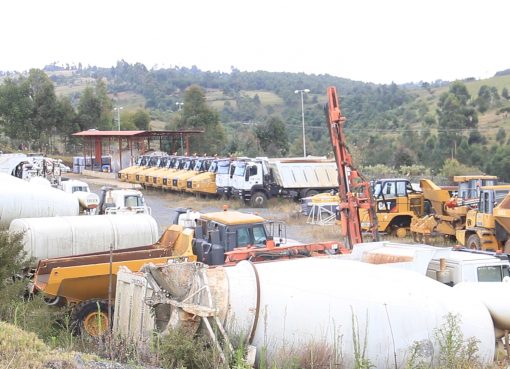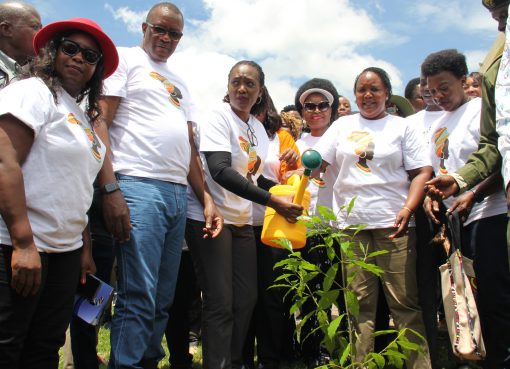

The World Bank in conjunction with the National Government through Regional Pastoral Livelihoods Resilience Project (RPLRP) has funded 17 projects in Narok County at a total cost of Sh.168 million.
Speaking when he unveiled livestock sale yard project at Ololulung`a Trading Centre in Narok South on Tuesday, the Director, State Department of Livestock Production, Emmanuel Tarus, said that the projects that include; construction of water pans, dams, boreholes, sale yards and training of farmers among others, are at various stages of implementation while some are complete.
The Director said that similar projects were being implemented in 14 other counties such as in Kajiado, Mandera, Wajir, Garissa, Marsabit among others.
Tarus noted that the projects will help build resilience for farmers to improve their livelihoods and also be able to protect their livestock during harsh weather conditions such as famine.
“Under emergency response, we have used a total of Sh.12 million in repairing water pans and boreholes and we have also bought and distributed 1,570 goats and 1,500 sheep in order to benefit farmers and help build resilience,” he added.
Tarus also urged farmers to join and form Small Micro Enterprises (SME) so that the youth could benefit and exploit new business opportunities such as transporting, loading and offloading livestock.
“As a directive and a fulfillment of the Big Four Agenda we as a Department should have ascertained 480 SMEs for banking, animal feeds and others that should help the youth,” he said.
The Narok Deputy Governor, Everlyn Aruasa, thanked the World Bank for the efforts being made to improve the livelihoods of livestock farmers.
She said that the projects would go a long way in positively impacting farmers in terms of increasing the economic activities of the area, erasing middlemen and creating employment opportunities.
“Farmers will now be secured even when famine strikes they shall be assured of a market and reliable water sources,” she added.
She also added that the County Government would accelerate the setting up of more water pans and drilling of more boreholes in the area even after RPLRP exits.
The Narok South Member of Parliament, Korei Ole Lemein prayed that milk coolers be provided to farmers in the area to help dairy farmers preserve their milk and also fodder machines and grass cutters to help farmers to store animal food during dry season.
“Some of these machines, especially those sold by private companies are very expensive and quite a number of farmers cannot afford them,” he said.
The RPLRP Programme Regional Team Leader, James Tendwa said that they had incurred a few major challenges such as drought and outbreak of livestock diseases such as foot- and mouth, peste des petits ruminants (PPR), Pleuropneumonia bacterial disease among others which they effectively dealt with.
“There has also been a few cases of insecurity at our markets but the cases are becoming fewer as time goes by due to the increased security strategies put in place,” he added.
The main intention of the project is to aid communities living in arid and semi-arid areas to improve their livelihoods through livestock which is their mainstay.
Livestock rearing in Narok is one of the main economic activities supporting the majority of rural household livelihoods in food security, employment and income generation. The major livestock species reared comprises of cattle, sheep and goats, poultry and bees.
According to 2009 census, the county has a Livestock population of 1.2million beef cattle, 300,000 dairy cows, 1.6 million sheep, 880,000 goats, 980,000 donkeys and 650,000 poultry with the number expected to have increased over the years.
By Mabel Keya-Shikuku/Salim Maleto




